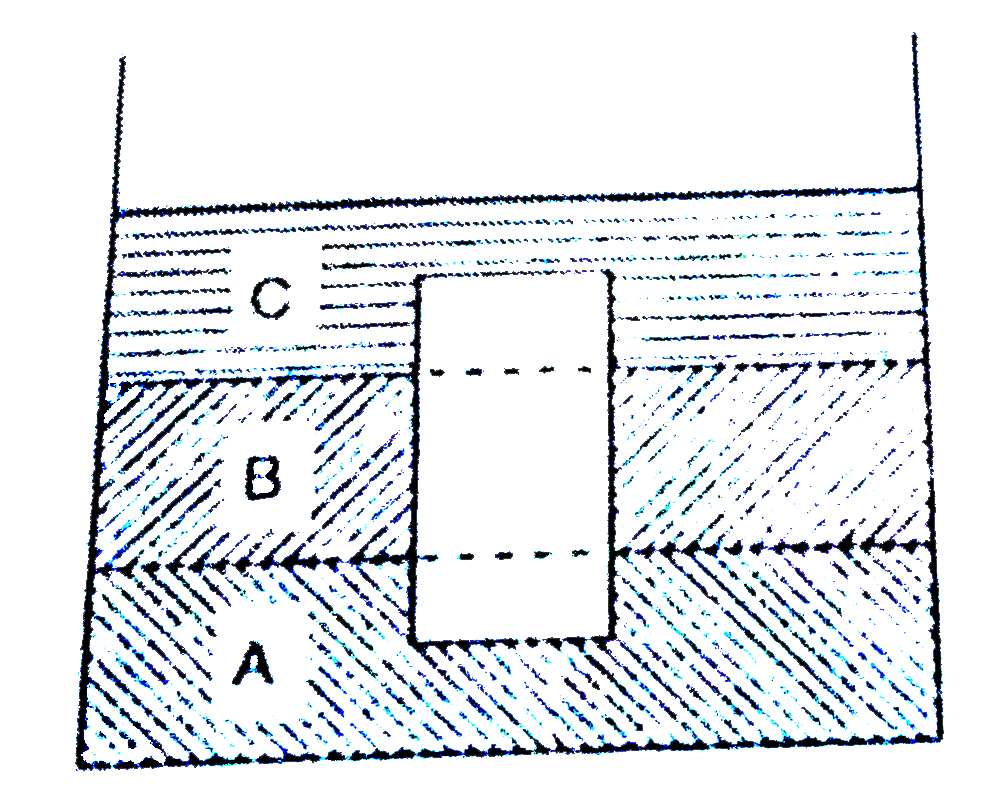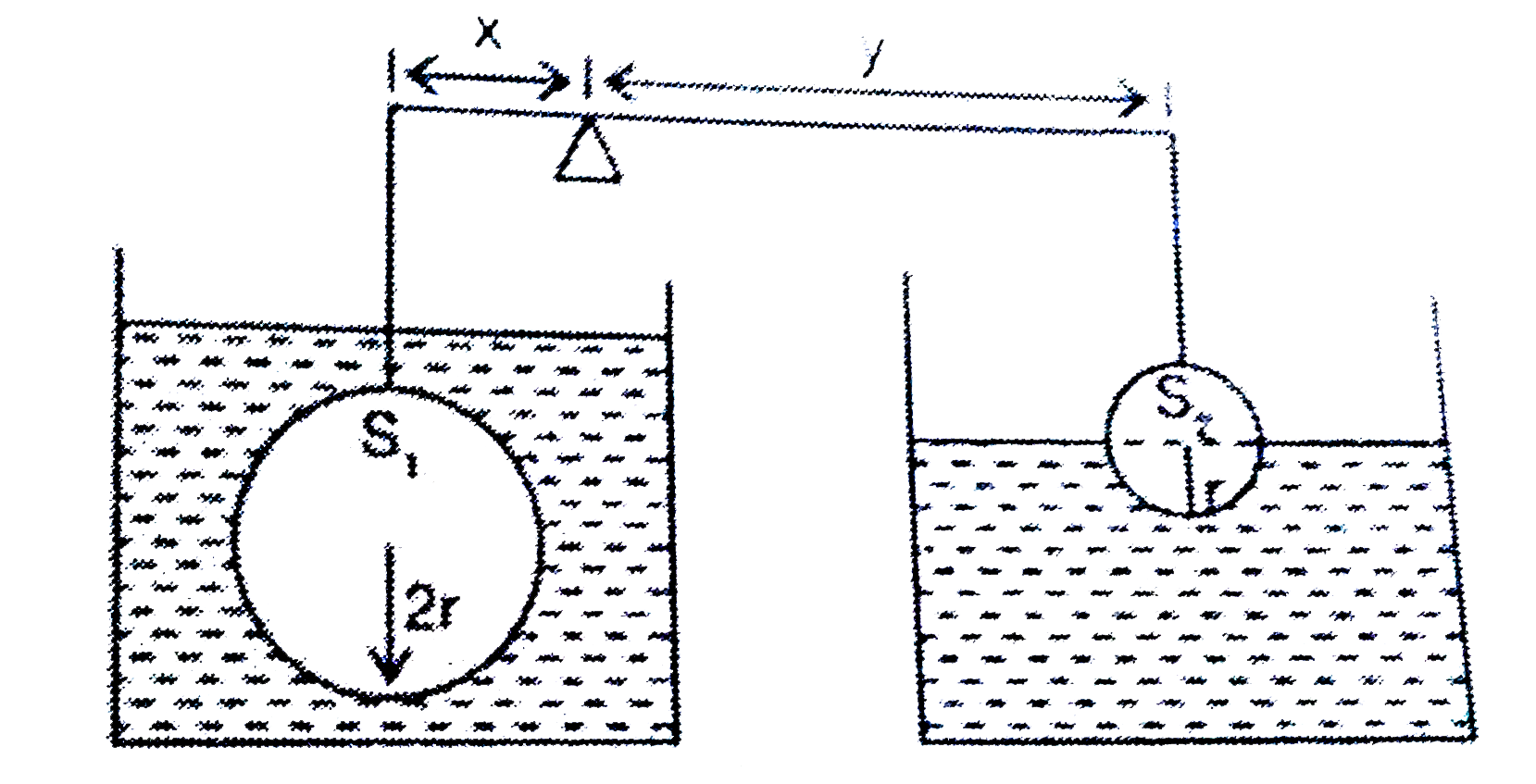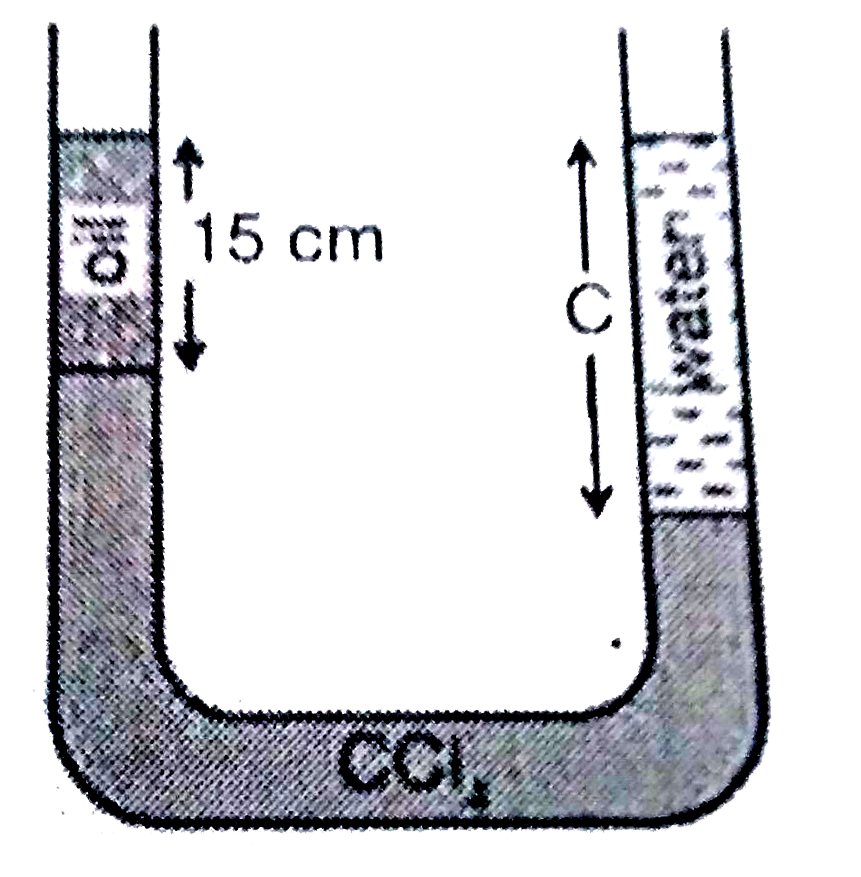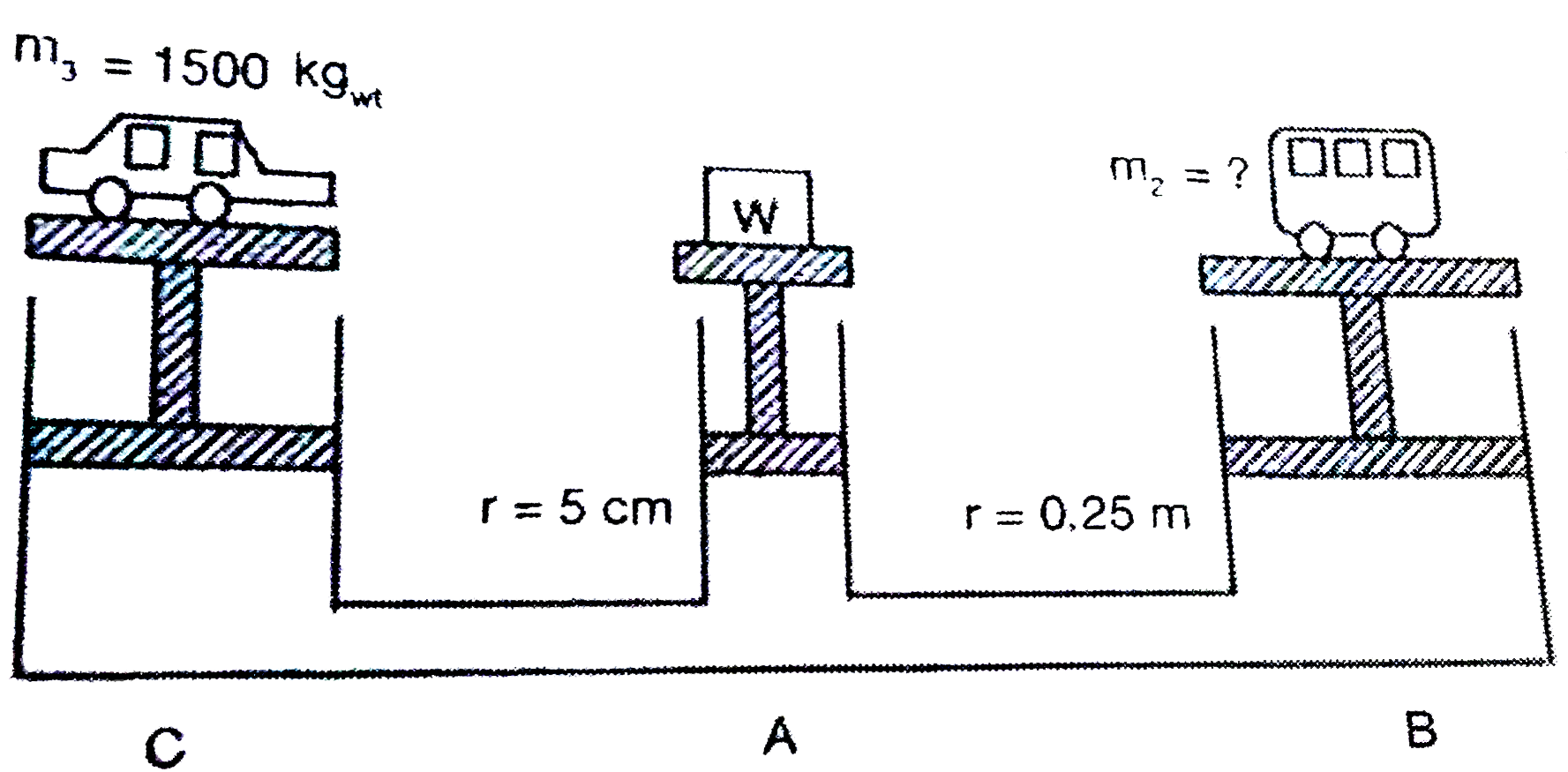Complete Solutions to LEVEL 2 of chapter HYDROSTATICE of Class 9 book with complete answers and questions
| Class 9 | PHYSICS |
| Chapter | HYDROSTATICE |
| PEARSON IIT JEE FOUNDATION | LEVEL 2 |
| Number Of Questions | 13 |
| Academic Year | 2023-24 |
An object floats in three immiscible liquids A, B and C of densities `3"g cm"^(-3),2"g cm"^(-3)`, respectively as shown in the figure. When the object is placed in the liquids, the levels of liquid A, B and C rise by 3 cm, 5 cm and 8 cm, respectively. The areas of cross-sections of the container and the object are 10 `cm^(2)and5cm^(2)`, respectively. Calculate the density of the object.

View SolutionA hollow sphere of external and internal diameter 4 cm and 2 cm, respectively, floats in a liquid of density 3.5 g `cm^(-3)`. The level of the liquid coincides with the center of the sphere. Calculate the density of the material of the sphere.
View SolutionTwo sphere `S_(1)andS_(2)` made of the same material and having radii 2r and r, respectively, are immersed in water and suspended from either end of a beam as shown in figure.
The beam is in equilibrium when `x:y=1:3` Determine the density of the object.

View SolutionA simple barometer tube contains some air in it. The length of the tube above the mercury level in the trough is 80 cm. The height of mercury in the tube is 71 cm at normal atmospheric pressure. What is the actual decrease in the atmospheric pressure if the barometer reads 65 cm ?
View SolutionA 'U' tube contains oil, carbon tetrachloride and water as shown in the figure. The density of oil is 0.8 `"g cm"^(-3)` and that of carbon tetrachloride is `1.6"g cm"^(-3)`. If oil and water surfaces are at the same level, find the height of the water column.

View SolutionA metallic sphere is made of an alloy of metels 'P' and 'Q' having specific gravities (or relative densities) 20 and 2, respectively. The sphere weighs 120 `g_(wt)` in air and 90 gwt in water. Find the percentage of the mass of metal 'P' in the alloy.
View SolutionA trough contains the two immiscible liquids 'A' and 'B' having densities `'p_(A)'and'p_(B)'(p_(B)gtp_(A))`. A cylindrical body having uniform area of cross section is immersed completely and vertically in the liquids such that `1//3rd` of its length is in liquid 'B' and the remaining is in liquid 'A'. Find the density of the body.
View SolutionIn the figure shown below, cylinder A has pump piston, whereas B and C cylinder have lift pistons. If the maximum weight that can be placed on the pump piston is 50 kgwt, what is the maximum weight that can be lifted by piston in the cylinder B? Find the total mechanical adventage.
`("Take g 10 m s"^(-2))`.

View SolutionAn empty glass test tube floats vertically in water to a depth of 5 cm. Now, on introducing a 8 cm liquid column into the tube, its depth in water is further increased by 4 cm. Now if the empty test tube is allowed to float vertically in the liquid, 5 cm of the tube is seen in air. Find the total length of the tube.
View SolutionTwo metallic spheres 'P' and 'Q' weighing 200 gwt and 150 gwt, respectively, balance each other when immersed in water. If the relative density of 'P' is 2 find the specific gravity of 'Q'.
View SolutionA gold ornament weighs 570 gram in air nad 520 gram in water. If the specific gravity of gold is 19, find the difference in the volume of water displaced when the ornament is immersed in water and the actual volume of the gold in the ornament. How do you account for this difference in volume ?
View SolutionA container is filled with two immiscible liquids A and B of densities `"2 g cm"^(-3) and "3 g cm"^(-3)` , respectively. A wooden cube of side 1 cm floats on the surface of liquid A such that one-fourth of its total length is immersed in this liquid (A).
Now, the wooden cube is completely immersed in liquid A by suspending a sinker of volume `"10 cm"^(3)` which is completely submerged in liquid B. Determine the weight of the sinker.
View SolutionA variable immersion hydrometer is used to measure the specific gravity of two liquids When the hydrometer reads 0.8, half of the total length of the hydrometer stem is immersed in the liquid and when the hydrometer reads `0.6,3//4` th of the total length of the hydrometer stem is immersed in the liquid. What is the maximum and minimum reading that can be measured by using this hydrometer ?
View Solution
LEVEL 2 questions and complete solutions for chapter HYDROSTATICE of PEARSON IIT JEE FOUNDATION of Class 9